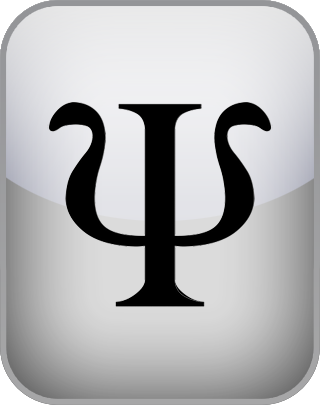Recenzowane akademicko przez dr Jennifer Schulz, Ph.D., adiunktkę psychologii
Test na styl osobowości
Niniejszy 105-pytaniowy test na styl osobowości pozwoli Ci uzykać wynik dla wszystkich 15 stylów osobowości. Style osobowości przedstawiają bardziej dynamiczny i płynny aspekt osobowości niż bardziej zorganizowane właściwości mierzone przez Test typu jungowskiego lub Test Wielkiej Piątki.
Podczas wypełniania testu zjawiskiem normalnym jest to, że prawidłowo funkcjonujące osoby stwierdzą, że wiele z określeń do nich pasuje. Jednak dla uzyskania optymalnych rezultatów NIE należy wybierać odpowiedzi ‘Zgadzam się’ na jakiekolwiek pytanie, jeżeli sytuacja nie odnosi się do powtarzalnego motywu w Twoim życiu. Jeśli nie masz pewności, czy dane stwierdzenie dotyczy Ciebie, wybierz opcję ‘Nie zgadzam się’.
Pytanie 1 z 105
Dopóki sam(a) nie jestem osobą dowodzącą, sprawy nie są według mnie pod kontrolą.
NASTĘPNE
"Test na styl osobowości" jest własnością IDR Labs International, a jednocześnie składa hołd dziełom Theodore'a Millona, Setha Grossmana, Aarona T. Becka, Arthura Freemana i Nancy McWilliams.
The Personality Style Test, based on the research of Dr. Theodore Millon, is a psychological assessment designed to identify and categorize various personality traits and styles. Millon’s pioneering work in personality theory has provided a comprehensive framework for understanding how individual personalities develop, adapt, and sometimes become maladaptive. His model emphasizes that personality is not static but exists on a continuum, with certain traits manifesting in healthier or more dysfunctional ways depending on life circumstances, coping mechanisms, and other factors.
Dr. Millon’s research is rooted in the idea that personality styles are patterns of thinking, feeling, and behaving that individuals use to interact with the world. Unlike traditional models that focus solely on pathological traits, Millon’s approach recognizes that everyone has a blend of personality characteristics that can be adaptive or problematic depending on context. His work on personality is best known for its application in understanding personality disorders, but the Personality Style Test goes beyond pathology to examine how various personality traits manifest across the population.
Millon identified several distinct personality styles, many of which align with broader categories of personality functioning. These styles are mapped along dimensions of interpersonal relationships, emotional expression, and coping strategies. For example:
Compulsive Personality Style: Characterized by a need for order, control, and perfectionism. Individuals with this style are highly disciplined, but they may also struggle with rigidity and difficulty adapting to change.
Dependent Personality Style: Marked by a deep need for approval and support from others, individuals with this style may have difficulty making decisions or functioning independently, relying heavily on close relationships for guidance.
Histrionic Personality Style: Defined by an intense need for attention and approval, people with this style often exhibit dramatic, emotional behaviors and seek validation through social interactions.
Narcissistic Personality Style: Associated with a strong sense of self-importance, individuals with this style often focus on their own needs and seek admiration, but they may struggle with empathy and close relationships.
Millon’s Personality Style Test also includes other styles, such as avoidant, schizoid, and aggressive styles, each highlighting different ways individuals interact with their environments and relationships. The test reveals which personality traits are dominant in an individual’s psychological makeup, offering insights into how these traits influence behavior, decision-making, and interpersonal relationships.
A key aspect of Millon’s work is the understanding that personality styles exist on a spectrum. While someone may exhibit traits associated with a personality disorder, they can still function adaptively if these traits are balanced and not extreme. Conversely, when these traits become rigid or exaggerated, they can lead to maladaptive behaviors and psychological distress.
In summary, the Personality Style Test based on Millon’s research offers a nuanced view of human personality, recognizing the complex blend of traits that define how individuals interact with the world. It’s an essential tool for clinicians and researchers alike, providing valuable insights into both healthy and problematic personality styles.
Chociaż niniejszy test może pomóc Ci ocenić zakres Twoich wyników na różnych skalach związanych z 15 stylami osobowości, ważne jest, aby wiedzieć, że wyniki testu niekoniecznie przekładają się na rzeczywistą ocenę dokonywaną przez kwalifikowany personel medyczny z fizycznie obecnym respondentem, która to ocena jest oparta na obszernej analizie zarówno osobistej, jak i rodzinnej historii respondenta.
W związku z tym należy pamiętać, że informacje zawarte na tej stronie internetowej dostarczają danych na temat sfery psychologicznej wyłącznie w celach edukacyjnych. Informacje przekazane są na zasadzie "tak jak jest" i nie powinny być rozumiane jako profesjonalna usługa, ani żadnego rodzaju gwarancje. Wydawca nie jest zaangażowany w świadczenie prawnych, medycznych, finansowych ani żadnych innych profesjonalnych usług. Jeśli potrzebujesz porady eksperta, zwróć się o pomoc do specjalisty.
"Test na styl osobowości"© jest własnością IDR Labs International. Aby dowiedzieć się więcej, zapoznaj się z naszymi Warunkami Korzystania z Usługi.

 English
English  Español
Español  Português
Português  Deutsch
Deutsch  Français
Français  Italiano
Italiano  Nederlands
Nederlands  Polski
Polski  Українська
Українська  Русский
Русский  Türkçe
Türkçe  العربية
العربية  日本語
日本語  한국어
한국어  ไทย
ไทย  汉语
汉语 